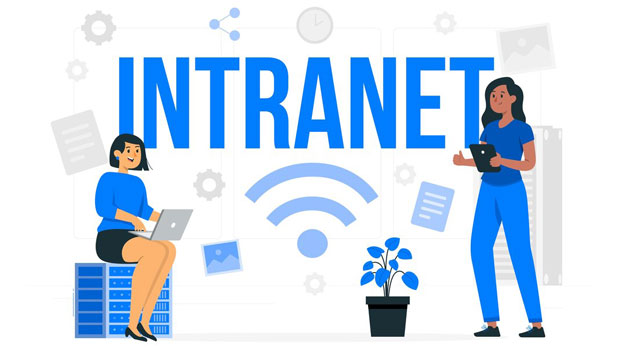When comparing the size of IP pools between different proxy providers, one important consideration is the vastness of the IP addresses they offer. Proxy providers differ in the number of IPs available, which can have a significant impact on performance, reliability, and anonymity. In this article, we will analyze and compare the IP pools offered by two popular proxy providers, examining which one offers a more extensive range of IP addresses. This comparison will help you make an informed decision when selecting a provider for your proxy needs, considering factors such as geography, performance, and variety. Understanding proxy ip PoolsBefore diving into the specifics of comparing IP pools, it’s important to understand what an IP pool is and why its size matters. In simple terms, an IP pool refers to the collection of IP addresses that a proxy provider can offer to users. These IPs can be used for various purposes, including web scraping, accessing geo-restricted content, and maintaining anonymity online. The larger the IP pool, the more options you have for rotating your IP address. This is particularly useful for avoiding detection when engaging in activities such as scraping or automating tasks. Having access to a large IP pool ensures that your traffic looks more natural, helping to prevent bans, CAPTCHAs, and other restrictions that could arise from using a limited number of IP addresses.The Importance of a Large IP PoolA larger IP pool provides several benefits for users. First, it allows for greater flexibility in terms of geographic diversity. proxy ips are often categorized based on their location, with some providers offering IPs from specific countries or regions. If you need to target users from a particular region or access localized content, a larger IP pool can provide you with more options.Second, a large pool of IP addresses is essential for users who need to rotate IPs frequently. For example, web scraping tools often require rotating IPs to avoid being blocked by websites. If you only have access to a limited set of IPs, the risk of detection increases. A provider with a larger pool can mitigate this risk by offering a variety of IP addresses to choose from.Lastly, the size of the IP pool can also impact the stability and reliability of your connections. With more IP addresses to choose from, you are less likely to experience downtime or delays due to overuse of certain IPs. This is especially important for businesses or individuals who rely on proxies for mission-critical tasks.Comparing the IP Pools of PYPROXY and Smart ProxyWhen it comes to comparing the size of the IP pools between PyProxy and Smart Proxy, we need to look at several key factors: the total number of IPs offered, the geographic distribution of those IPs, and the quality of the IPs themselves.1. Total Number of IPs PyProxy offers a vast array of IP addresses, catering to a wide range of proxy needs. Their pool includes millions of residential, data center, and mobile IPs, offering a diverse selection for various use cases. On the other hand, Smart Proxy provides a similarly large number of IPs but focuses more on residential and rotating proxies, offering a more specific subset of IPs geared toward high anonymity and security. Both providers offer millions of IPs, but the exact number can vary depending on the specific plan or package chosen.2. Geographic Distribution Both PyProxy and Smart Proxy provide IPs from a variety of locations around the world. However, PyProxy typically offers a broader selection of countries, giving users access to more diverse IPs from different regions. This can be a significant advantage if you need to target specific geographic markets or bypass regional restrictions. Smart Proxy, while also offering a range of locations, tends to focus more on countries with high demand for proxy services, which may limit the range for some users. 3. Quality of the IPs While both PyProxy and Smart Proxy offer high-quality IPs, the type of IPs can differ. For instance, PyProxy may offer a mix of both static and rotating IPs, whereas Smart Proxy specializes in rotating residential proxies. rotating residential proxies are considered some of the most reliable and hardest to detect, as they mimic real user traffic. If your use case demands high anonymity and stealth, Smart Proxy's rotating residential proxies may be the better choice. PyProxy's offering is more diverse, which may be beneficial for users with a broader range of needs, including those who require more stable and consistent connections.Advantages of a Larger IP PoolA larger IP pool provides several key advantages, particularly in the context of privacy, security, and web scraping. Here are some benefits of having access to a larger IP pool:1. Enhanced Anonymity The more IP addresses you have access to, the more difficult it is for websites to track your activity. A large IP pool allows you to rotate your IP address frequently, making it harder for websites to identify and block your traffic. This is especially important for tasks such as web scraping, where you need to make numerous requests without getting banned or flagged as a bot.2. Reduced Risk of Bans When using proxies for web scraping or other automated tasks, websites often track and block IP addresses that make an unusually high number of requests. With a large IP pool, you can avoid hitting rate limits or triggering security measures such as CAPTCHAs. By rotating IPs regularly, you can minimize the chances of your IP address being flagged or banned.3. Faster and More Reliable Connections A larger pool of IPs means there are more available IPs to handle your requests. This can help distribute traffic more evenly, reducing the chances of overloading a single IP address. As a result, your connections are likely to be faster and more stable, which is crucial for tasks that require high availability, such as e-commerce or social media management.Choosing the Right Provider Based on IP Pool SizeWhen choosing a proxy provider, the size of the IP pool is an important factor to consider. However, it’s not the only factor. You should also evaluate other elements such as the provider’s reliability, connection speed, customer support, and pricing. If a larger IP pool is a priority for your needs, both PyProxy and Smart Proxy offer robust options, but it’s essential to assess your specific requirements and determine which provider aligns best with your goals.If you need a broad selection of IPs across various regions and don’t mind a mix of IP types, PyProxy might be the better fit. However, if you prioritize high anonymity and stealth, Smart Proxy’s rotating residential proxies may offer a superior experience for tasks that require evading detection.ConclusionIn conclusion, both PyProxy and Smart Proxy offer large IP pools that can cater to a wide range of proxy use cases. However, the size of the IP pool alone isn’t the only consideration when choosing a provider. Factors such as geographic distribution, the quality of the IPs, and the specific needs of your use case should also be taken into account. By carefully evaluating these factors, you can select the proxy provider that best meets your requirements, ensuring optimal performance, privacy, and reliability for your online activities.
Apr 03, 2025
![arrow]()




























































